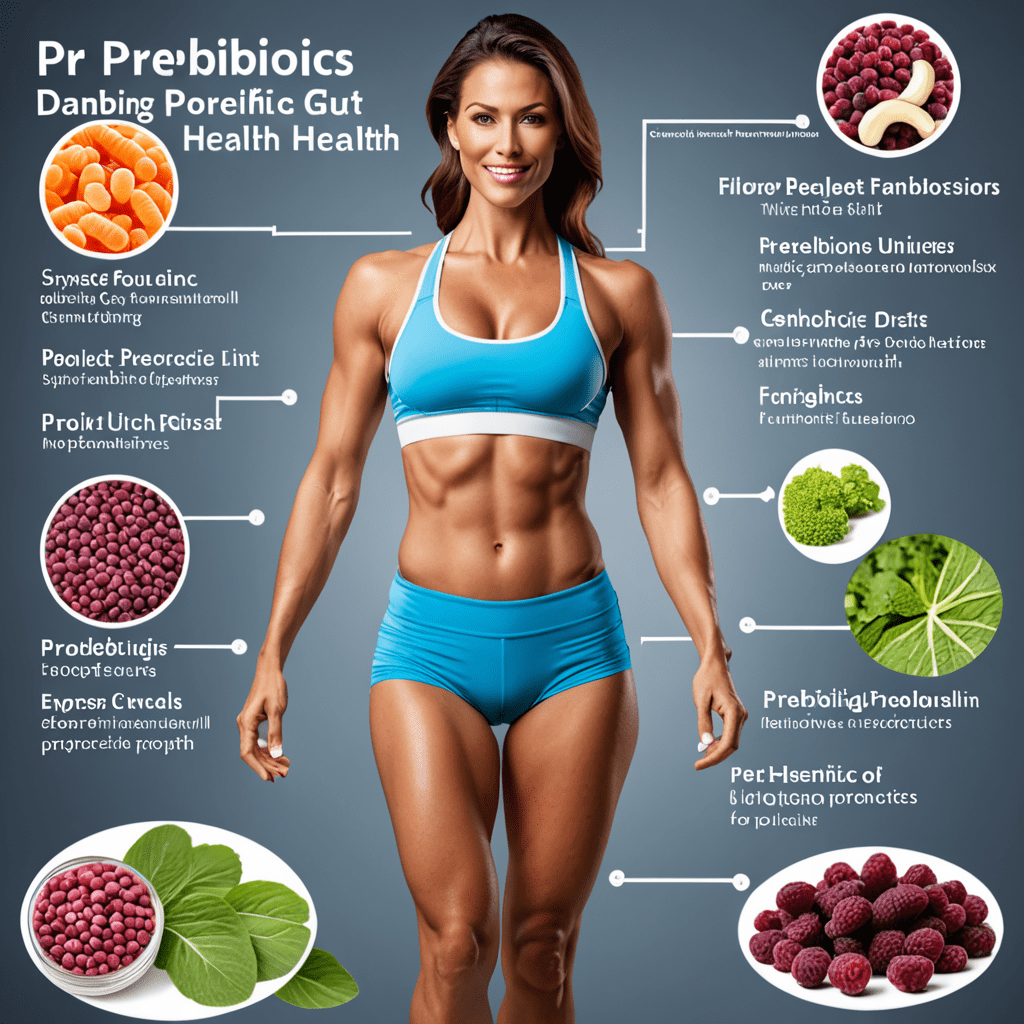
Essential Nutrients for a Healthy Pregnancy Diet
1. Importance of a Balanced Diet During Pregnancy
Eating a balanced and nutritious diet is crucial during pregnancy, as it provides the essential nutrients needed for both the mother's health and the baby's development. A healthy pregnancy diet ensures the baby receives the building blocks for proper growth and development, while also supporting the mother's increased nutritional needs.
2. Essential Macronutrients for Pregnancy
Macronutrients are nutrients that the body needs in large amounts. They provide energy and support various bodily functions. During pregnancy, the three essential macronutrients are protein, carbohydrates, and fats.
- 2.1. Protein: Protein is essential for building and repairing tissues, including the baby's organs and muscles. It also plays a role in hormone production and immune function. Aim for at least 70 grams of protein per day.
- 2.2. Carbohydrates: Carbohydrates provide energy for the body. Choose complex carbohydrates, such as whole grains, fruits, and vegetables, over simple carbohydrates, such as refined sugars and white bread.
- 2.3. Fats: Fats are essential for cell growth, hormone production, and brain development. Choose healthy fats, such as those found in avocados, nuts, seeds, and fatty fish.
3. Essential Micronutrients for Pregnancy
Micronutrients are nutrients that the body needs in smaller amounts. They play a vital role in various bodily functions and are essential for the baby's development.
- 3.1. Iron: Iron is essential for red blood cell production, which carries oxygen throughout the body. During pregnancy, the body's need for iron increases significantly. Aim for 27 milligrams of iron per day.
- 3.2. Folic Acid (Vitamin B9): Folic acid is crucial for preventing neural tube defects in the baby. It is recommended to take a prenatal vitamin containing 400 micrograms of folic acid daily, even before conception.
- 3.3. Calcium: Calcium is essential for building strong bones and teeth in the baby. It also plays a role in muscle function and nerve transmission. Aim for 1,000 milligrams of calcium per day.
- 3.4. Vitamin D: Vitamin D helps the body absorb calcium and is essential for bone health. Aim for 600 international units (IU) of vitamin D per day.
- 3.5. Vitamin B12: Vitamin B12 is essential for red blood cell production and nerve function. Aim for 2.6 micrograms of vitamin B12 per day.
- 3.6. Choline: Choline is essential for brain development and memory. Aim for 450 milligrams of choline per day.
- 3.7. Iodine: Iodine is essential for thyroid hormone production, which is crucial for fetal brain development. Aim for 200 micrograms of iodine per day.
- 3.8. Omega-3 Fatty Acids: Omega-3 fatty acids are essential for brain development and vision. Aim for 200-300 milligrams of omega-3 fatty acids per day.
6. Food Safety During Pregnancy
Food safety is crucial during pregnancy, as certain foods can pose risks to the developing baby. Here are some important food safety tips to follow:
- Wash hands thoroughly with soap and water before handling food.
- Cook meat, poultry, and eggs thoroughly to an internal temperature of 165°F (74°C).
- Avoid raw or undercooked seafood, such as sushi, sashimi, and oysters.
- Do not eat unpasteurized milk or cheese.
- Wash fruits and vegetables thoroughly, especially leafy greens.
- Avoid processed meats, such as hot dogs, deli meats, and sausages.
- Limit caffeine intake to 200 milligrams per day.
- Avoid alcohol consumption.
7. Supplements During Pregnancy
Prenatal vitamins are recommended for all pregnant women to ensure they are getting the essential nutrients needed for their health and the baby's development. In addition to prenatal vitamins, some women may need additional supplements, such as:
- Iron: If iron levels are low, an iron supplement may be prescribed.
- Folic acid: If there is a risk of neural tube defects, a higher dose of folic acid may be recommended.
- Calcium: If calcium intake is low, a calcium supplement may be prescribed.
- Vitamin D: If vitamin D levels are low, a vitamin D supplement may be recommended.
It is important to talk to your healthcare provider about any supplements you are taking or considering taking during pregnancy.
8. Managing Food Aversions and Cravings
Food aversions and cravings are common during pregnancy. Here are some tips for managing them:
- Identify your triggers: Try to identify the foods that trigger your aversions and cravings. Once you know what they are, you can avoid them or find alternatives.
- Eat small, frequent meals: Eating small, frequent meals can help to settle your stomach and prevent nausea.
- Stay hydrated: Drinking plenty of fluids can help to prevent dehydration, which can worsen nausea and cravings.
- Talk to your healthcare provider: If you are having difficulty managing your food aversions and cravings, talk to your healthcare provider. They can offer advice and support.
9. Sample Pregnancy Meal Plan
Here is a sample pregnancy meal plan that can provide a variety of essential nutrients:
Breakfast:
- Whole-wheat toast with avocado and a hard-boiled egg
- Greek yogurt with berries and granola
- Oatmeal with nuts and seeds
Lunch:
- Salad with grilled chicken or fish, quinoa, and vegetables
- Soup and a whole-wheat sandwich
- Leftovers from dinner
Dinner:
- Salmon with roasted vegetables and brown rice
- Chicken stir-fry with tofu and whole-wheat noodles
- Lentil soup with whole-wheat bread
Snacks:
- Fruits and vegetables
- Nuts and seeds
- Yogurt
- Hard-boiled eggs
- Whole-wheat crackers with cheese
10. Tips for Maintaining a Healthy Pregnancy Diet
Here are some tips for maintaining a healthy pregnancy diet:
- Plan your meals and snacks ahead of time. This will help you to make healthy choices and avoid unhealthy cravings.
- Cook at home more often. This will give you more control over the ingredients in your food.
- Choose whole, unprocessed foods. These foods are more nutritious and filling.
- Limit sugary drinks and processed foods. These foods are high in calories and low in nutrients.
- Listen to your body. Eat when you are hungry and stop when you are full.
- Don't be afraid to ask for help. If you are struggling to eat healthy, talk to your healthcare provider or a registered dietitian.
FAQ
What foods should I avoid during pregnancy?
You should avoid raw or undercooked meat, poultry, and eggs; unpasteurized milk and cheese; raw or undercooked seafood; processed meats; alcohol; and excessive caffeine.
What supplements should I take during pregnancy?
Prenatal vitamins are recommended for all pregnant women. Some women may also need additional supplements, such as iron, folic acid, calcium, or vitamin D. Talk to your healthcare provider about any supplements you are taking or considering taking.
What should I do if I have food aversions or cravings?
Identify your triggers and try to avoid them. Eat small, frequent meals and stay hydrated. If you are having difficulty managing your food aversions and cravings, talk to your healthcare provider.
What is a healthy pregnancy meal plan?
A healthy pregnancy meal plan should include a variety of whole, unprocessed foods from all food groups. It is important to eat plenty of fruits, vegetables, whole grains, lean protein, and healthy fats.
How can I maintain a healthy pregnancy diet?
Plan your meals and snacks ahead of time, cook at home more often, choose whole, unprocessed foods, limit sugary drinks and processed foods, listen to your body, and don't be afraid to ask for help.


